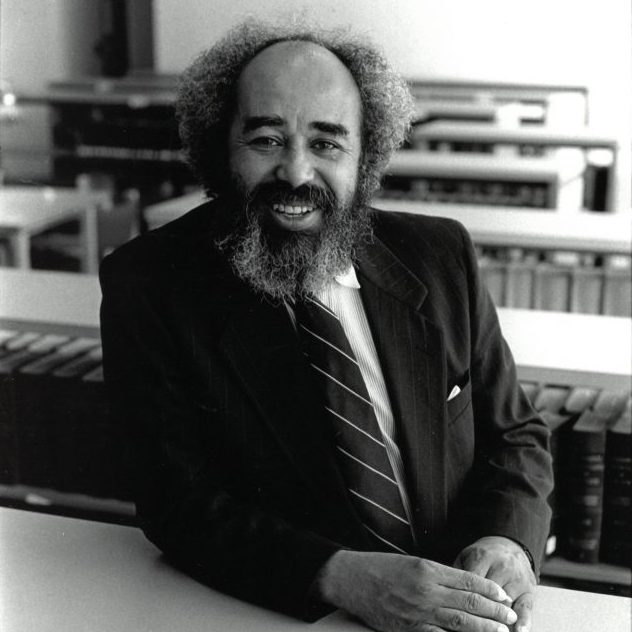
W. Haywood Burns was a passionate advocate for civil rights, racial justice, gender equality, and equal and international human rights.
The second dean of CUNY Law from 1987 to 1994, Burns cemented the need for Law School’s access mission and commitment to law in the service of human needs in New York City. The dream of a public law school for the people was realized in great part thanks to him.
Grassroots: Community, education, and mobilization
Haywood’s political activism showed at age 15 when he helped integrate a swimming pool in his native Peekskill, N.Y. After graduating with honors from Harvard College and earning his law degree from Yale, Haywood served as the first law clerk to U.S. District Court Judge Constance Baker Motley. Then, while Assistant Counsel to the NAACP Legal Defense and Educational Fund, he also served as general counsel to Martin Luther King’s Poor People’s Campaign. In 1969, Haywood helped to found and then became the first director of, the National Conference of Black Lawyers. He became the first African-American president of the National Lawyers Guild. He led both organizations in championing international solidarity from Grenada to Namibia. He monitored trials in Northern Ireland and South Africa’s first election and advised on the drafting of South Africa’s Interim Constitution.
Racial Justice Nationwide and at CUNY
Haywood continuously battled racism with his writing and in the courtroom, from proudly coordinating the Attica prisoners’ defense to protecting the rights of lawyers of color and opposing Clarence Thomas’s Supreme Court nomination. A recognized constitutional and criminal law authority, Haywood was the founding Dean of the City College Urban Legal Studies program from 1977 to 1987. He then became the first African-American Dean of a New York law school and led CUNY School of Law in gaining its accreditation, ensuring the survival of its progressive commitment to public interest law.
An excellent teacher, Haywood mentored thousands of students, particularly African Americans, fostering their entry into legal practice. In 1995, after a year as a Senior Visiting Scholar at Yale Law School, Haywood returned to CUNY as a University Professor. The recipient of numerous awards and honors, he was President of the Nation Institute, a pillar of the Center for Constitutional Rights, and a member of the Council on Foreign Relations, and numerous other organizations.
A Career the Cut Across Every Line
Haywood’s generosity of spirit and appetite for connection was unbounded; he always reached out with true emotional concern to others. His talents, passions, and zest for life were his signature: husband; father; motorcyclist; basketball player and Knicks fan; dancer, and rock ‘n roll enthusiast. He treated himself to a pair of blue suede shoes on his fiftieth birthday.
Haywood lost his life in a car accident, along with M. Shanara Gilbert, an associate professor at the Law School, while attending a conference in South Africa on the transition to democracy in that country. As David Gonzalez wrote in his New York Times column, Haywood’s “career cut across racial and ethnic lines, uniting politicians and persecutors, eager young attorneys and prosecutors, and grizzled civil rights veterans, the famous and the forgotten.”
In 1996, following his death, a memorial to Haywood’s prominence in, and commitment to, civil rights, the Law School established the W. Haywood Burns Chair in Human & Civil Rights, a visiting position for persons prominent in the struggle for civil and human rights.
